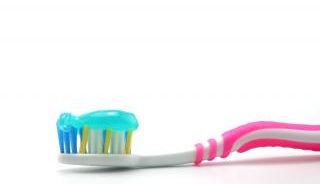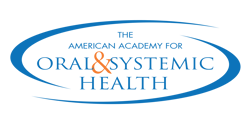4 Reasons to Say "No" to Triclosan
We live in a world currently suffering from a serious case of antibacterial overkill. There are many environmental toxins that we are exposed to today, but did you know that your toothpaste contains a very dangerous one? Triclosan is an insidious additive meant to fight the spread of germs, but with the emergence of drug-resistant superbugs, the question is whether Triclosan is a superhero or one of the bad guys. The answer may surprise you. Unfortunately, Triclosan is a major player when it comes to the problem of antibiotic resistance and we have seen the impact of these drug resistant superbugs. It’s a potent wide-spectrum antibacterial and antifungal agent, originally patented for use as a pesticide. It fights against surface bacteria to help eliminate the spread of disease and infectious agents. Sounds good right? WRONG!
There are numerous documented side effects from using Triclosan, below is a short list.
- Hormone disruption
Numerous studies have shown that Triclosan alters testosterone and thyroid serum levels making it a dangerous endocrine disruptor. It also affects estrogen adaptors and synthesis contributing to premature puberty. Since Triclosan is lipophilic, it stores in fat cells and has been found to hide in breast milk and blood, it can have long-term hormonal effects that have a potential to be passed along, affecting immune health, and potentially fertility and pregnancy. - Allergies
Triclosan exposure leads to the development of allergies, especially a problem with children and their young, developing immune systems. It changes the bacterial flora on the skin of susceptible, growing children altering the host immune response. - Cancer
When Triclosan is broken down, it turns into dioxin. Dioxin is a carcinogen and has been linked to many types of cancer. When combined with chlorinated, toxic tap water, it can form chloroform, which is another carcinogen. The carcinogenic properties of Triclosan alone should be warning enough to stay away from Triclosan! - Environmental Hazards
The chemical’s dioxins leak into the water supply and studies have shown that dioxin is present in nearly 60 percent of US rivers and streams. It’s been found to be present in fish and even dolphins off the East Coast proving that these dioxins are invading our environment and moving through the ocean’s food chain.
Triclosan, like many other toxic additives, has been cleverly disguised by product manufactures using names like “BioFresh” and “MicroBan,” as well as Irgasan, Lexol, Ster-Zac and Cloxifenolum. Do not be fooled! Besides toothpaste and mouthwash, you might find these chemical names on the labels of antibacterial hand soaps and body washes, first aid products, cosmetics and kitchenware. Some popular brand names that use Triclosan in some or all of their products include: Colgate, Arm and Hammer, Queen Helene, Garden Botanika, Reach, Tea Tree Therapy, CVS, BioFresh and many more.
 The FDA admits that using antibacterial agents like Triclosan is no more effective than using normal soap and water. Superbugs are now a major problem, which are a direct result of Triclosan usage. For your health and the health of our future generations, please read the labels of the products you bring into your household and BAN the use of Triclosan.
The FDA admits that using antibacterial agents like Triclosan is no more effective than using normal soap and water. Superbugs are now a major problem, which are a direct result of Triclosan usage. For your health and the health of our future generations, please read the labels of the products you bring into your household and BAN the use of Triclosan.
Wellness Works Group
www.wellnessworksgroup.com
